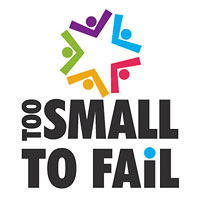The next issue of the Italian Journal in Sport and exercise Psychology will be devoted to the experience and field research of integrated soccer conducted with 30 boys and girls (6-12 years old). More information write at this blog.
Tag Archive for 'genitori'
Page 3 of 9

The first year of the project took place in the period October 2015 – June 2016 thanks to the Roma Cares Foundation, an expression of the social responsibility of AS Roma, on a proposal by Asd Integrated Soccer Academy, in collaboration with CIP – National Italian Paralympic Committee, the Fisdir – Sport Federation Intellectual and Relational Disabilities and the support of the health service ASL Roma/1.
Email: egrassi@regione.lazio.it - vvolpi@regione.lazio.it
Tel .: +39 06 5168 8038 – 8269
- To promote the sport in young people
- Change the sports culture
- Sport is a long-term project
- What it needs young people to develop
- Teaching task orientation to learn how to win and lose
- The parents role in these contexts
Conference entitled “PARENT IN SPORT RESOURCE OR OBSTACLE?” to be held Saturday 1 October from 17.00 to 19.00 hours at the Aula Magna of the I.C. Leonardo Da Vinci in Civitanova Marche by Prof. Alberto Cei. The conference stems from the managers and coaches of local sports clubs to reflect on the influence of parents in the sport of their children in an attempt to create an educational alliance. In the last years the relationship between parents and children has changed a lot, as well as the degree of parental involvement in the children lives. Sports clubs and coaches are often crippled by this presence, which are not used to relating and, on the other hand, parents often do not seem to know how to give clear boundaries to your role. Probably the young who are in the middle of this sort of triangle, are likely to be confused. From this disorientation was born the idea of the Conference, we would like to try to build together some “way of living together” and an alliance that will help us to be for our kids the best parents and the best possible coaches. The meeting is open to parents, managers and coaches of youth swimming areas and other sports, teachers and sports fans.
Walking is the first thing an infant wants to do and the last thing an old person wants to give up. Walking is the exercise that does not need a gym. It is the prescription without medicine, the weight control without diet, and the cosmetic that can’t be found in a chemist. It is the tranquilliser without a pill, the therapy without a psychoanalyst, and the holiday that does not cost a penny. What’s more, it does not pollute, consumes few natural resources and is highly efficient. Walking is convenient, it needs no special equipment, is self-regulating and inherently safe. Walking is as natural as breathing.

The weight condition of the child’s is correlated with that of the parents. In fact, when at least one parent is overweight 22.2% of the children is overweight and 5.6% obese. When at least one parent is obese, 30.7% of children are overweight and 13.3% obese. These data regards Modena, city in the Central Italy, other Regions showed worst results.

 Read Too Small to Fail very useful for parents and adults.
Read Too Small to Fail very useful for parents and adults.
Focusing. Creating. Cooperating. Communicating. These are all important skills children learn when we play with them! Through play, children learn how to problem solve, work together, explore physical movements, overcome challenges, and much more. Play helps children develop critical social-emotional and language skills that will help prepare them for success in school and in life.
As children’s first and best playmates, parents and caregivers play a powerful role in nurturing these skills from birth. Here are a few tips on how you can encourage learning through play:
- Make the most of your time playing with your child. From they day they are born, children learn through the everyday moments they share with their parents and caregivers. Check out these helpful tips from ZERO TO THREE.
- You can encourage your child’s physical development by playing together. Hide and seek and dancing are a great (and fun) way to start. Learn more about how you can boost your child’s development through play on Baby Center.
Keep a box of everyday objects like plastic bottles, empty containers or old clothes for dress up. These are great items to help children spark their imagination. Through creative play, children explore the world in their own way, which is important for learning and development. Check out Raising Children Network for fun creative play activities.
The English football federation promotes the program Respect Silent Weekend. During the chidren matches coaches and spectators have to remain silent to raise awareness of the need to create a positive and pressure-free environment in which children can enjoy football and learn to love and develop in the game. It is not mandatory for youth leagues to take part but the Federation hope they will opt in and encourage their member clubs to take part and spread awareness of this fantastic initiative.
The top concern of Canadians is poor parental behaviour (60%), followed by lack of access for some people (48%) and violence (48%).
If children are to grow and develop in their sport or physical activity, an environment of positive communication and respect must exist. Parents should observe the following Code of Conduct with their child athletes. The following code is taken from a resource manual developed for community coaches by the Canadian Centre for Ethics in Sport (CCES).
- I will remember that my child plays sport for his or her enjoyment, not for mine.
- I will encourage my child to play by the rules and to resolve conflicts without resorting to hostility or violence.
- I will teach my child that doing one’s best is as important as winning, so that my child will never feel defeated by the outcome of a game/event.
- I will make my child feel like a winner every time by offering praise for competing fairly and trying hard.
- I will never ridicule or yell at my child for making a mistake or losing a competition.
- I will remember that children learn best by example.
- I will applaud good players’ performances by both my child’s team and their opponents.
- I will not force my child to participate in sports.
- I will never question the official’s judgement or honesty in public.
- I will support all efforts to remove verbal and physical abuse from children’s sporting activities.
- I will respect and show appreciation for the trained volunteer coaches who give their time to provide sport activities for my child, understanding that I have a responsibility to be a part of my child’s development.
The Italian Football Federation was the only one Federation requiring the sport psychologist for theFootball schools who wish to become qualified or elite, as they are currently defined. This year the Federation delete this rule, this step back requires an equally significant reaction from the sport psychologists engaged in youth football. The official statement indicates that the Football school to be called élite could, among ohers options, “develop a training project during the football season, in collaboration with one ” Sports Psychologist ” experienced and certified.”
The contribution of such experience must be identified in the implementation of projects supporting specific figures involved in the educational process of the child (staff, parents, etc.).”
The psychologist will be an optional choice of the Football school, it’s no more mandatory to have in the club staff the psychologist. The clinical psychologist organize, very often in the Football school, improbable meetings with parents, however, such activity has nothing to do with sport psychology. So what she does and what she offer the sport psychologist in a Football school to really become an élite tool?
Through my experience in youth football I can define some basic guidelines, characterizing a project of sport psychology in Football school: the adequacy of the method adapted to the age of young athletes, the social surrounding and the organizational environment; the use of specific psychological tools; the continuity of the times, the constant monitoring and validation; planning specific psychological objectives, also across the other areas (technical, tactical, motor skills), the design of practical interventions allowing the achievement of shared goals.
Here are a number of proposals that must be developed, organized and obviously adapted to the context:
- Training of coaches
- Observation on the pitch and data sharing
- Meeting with parents with a previous needs analysis, they have to be scheduled and conducted through interactive teaching techniques
- Integrated projects, on specific topics within the club and the territory
- Professional lab with psychologists and coaches
- Studies-research on particular soccer aspects
These are just some of the many practical suggestions that the sport psychologist may propose in a Football school.
Finally I would like to remind both psychologists and Football school collaborators that it’s not possible any collaboration without a fundamental activity: stay in the pitch. One day, after listening to my experience, a manager of Football school asked me amazed: but then the psychologist stay in the pitch?
Sports psychologist has to stay in the pitch and there is no sport professional that it does not touch the green rectangle and this is even more true when we talk about children and football.
The activities that can be performed are varied and can, if well organized, have a strong impact on the Football school performances. If you are a sport psychologists or a Football School professional, contact me if you want to learn more.
(by Daniela Sepio)
Children as young as eight are being put off sport by the behaviour of their parents, according to a survey by the Marylebone Cricket Club (MCC) and cricket charity Chance to Shine. Of the 1,002 eight to 16 year olds surveyed, 45% said the bad behaviour of parents made them feel like not wanting to take part in sport.
84% of parents of those children agreed that negative behaviour discouraged youngsters from participation.
In the survey, 41% of the children spoken to said their parents criticised their performance – 16% saying it happened frequently or all the time – with 58% of the parents believing there was more shouting from the sidelines compared to their childhood.
One child reported seeing a mother smash a car window after the opposition scored, another witnessed “a dad hit the ref for sending his kid off”, while one parent recalled police being called when two opposing parents started fighting.
Chance to Shine coaches are to begin a summer programme of lessons in playing sport in a sporting yet competitive manner to 350,000 children in more than 5,000 state schools as part of the MCC Spirit of Cricket campaign.
Coaching ambassador Kate Cross, who plays for England Women, said: “We want children to be competitive but there is a line that shouldn’t be crossed and that applies to children as well as to any pushy parents watching them.”
Source: BBC News






